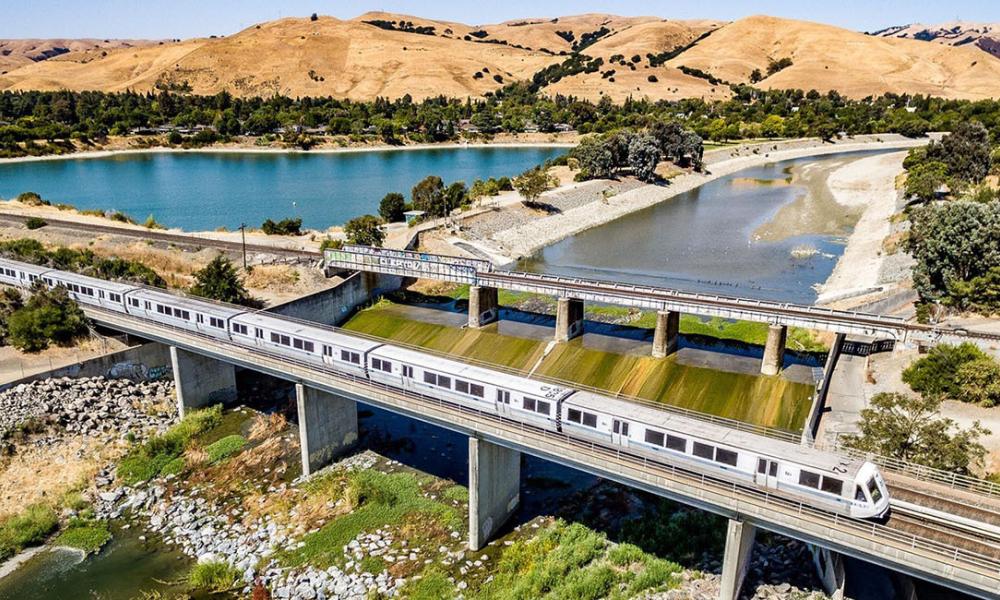Implementation
Follow the progress being made to advance the strategies of Plan Bay Area 2050.

The Metropolitan Transportation Commission (MTC) and Association of Bay Area Governments (ABAG) adopted Plan Bay Area 2050 in October 2021. The plan represents the most comprehensive regional vision to date, having been developed with deep community engagement and a strong focus on equity, while combining a broad range of strategies with a robust commitment to implementation.
Integrated as the final chapter, the Implementation Plan identifies the near-term steps necessary to accelerate Plan Bay Area 2050’s long-term vision, focusing on concrete actions that MTC and ABAG can advance – in partnership with public, non-profit and private organizations – over the next five years for each of the plan's 35 strategies.
The Implementation Plan also:
- Explores success factors for each of the plan’s 35 adopted strategies (including authority, financial resources, technical capacity, and public and political support)
- Proposes MTC/ABAG roles (whether to lead, partner or support strategy implementation)
- Identifies over 80 actions for MTC/ABAG through the year 2025
Implementation includes several key commitments with respect to tracking progress, including:
- Deeper integration with Vital Signs (the region’s performance monitoring tool)
- Annual progress updates to MTC/ABAG committees
2023 Implementation Progress Updates
The second annual implementation progress updated was shared at the Joint MTC Planning Committee with the ABAG Administrative Committee on October 13, 2023.
2022 Implementation Progress Updates
The first annual Implementation progress update was presented at the Joint MTC Planning Committee with the ABAG Administrative Committee on November 4, 2022. Below are highlights of implementation progress currently underway.
Partnership Focus: Federal & State Leadership
Federal and state partners have been especially active in several key funding and policy areas, including the Bipartisan Infrastructure Law, the Federal Inflation Reduction Act (IRA) and California’s Zero-Emission Vehicle Package.

Housing: Scaling up the Regional Portfolio
The Bay Area Housing Finance Authority (BAHFA) is ramping up, the Regional Housing Technical Assistance program continues providing support for local jurisdictions, and preparations are underway for a potential 2024 regional housing measure.

Housing and Economy: Growth Framework Implementation
MTC adopted the Transit-Oriented Communities Policy. A Priority Sites Pilot has been proposed to fund significant affordable housing projects, and outreach is underway on a new Priority Production Area grant program to spur economic development in industrial areas.
Transportation: Supporting Transit Recovery
MTC launched the Clipper® BayPass pilot program and procured a consultant to support Regional Mapping and Wayfinding. The Commission also approved the Major Project Advancement Policy to facilitate the funding and delivery of major projects throughout the Bay Area.

Transportation: Reimagining a More Equitable System
MTC’s Active Transportation Network is a key component of the updated Complete Streets policy. Work is underway on the Next Generation Bay Area Freeways Study. The Bay Area Infrastructure Financing Authority adopted a Toll Discount Pilot Program on Interstate 880.
Environment: Partnering to Advance Resilience and Conservation
Several efforts are working to support resilience and adaptation around the Bay, including the Sea Level Rise Adaptation Funding and Investment Framework, the 2022 Estuary Blueprint and the Regional Climate Adaptation Legislative Working Group. Work is also proceeding to make State Route 37 more resilient, and a Bay Trail Equity Strategy has been launched.
Read the Final Implementation Plan
Advocacy & Legislation
- Work towards placement of an affordable housing bond measure on the November 2024 ballot
- Continue engagement on next steps for a regional transportation funding measure
New, Existing or Restructured Initiatives
- Develop and analyze network management concepts for the Bay Area
- Continue work on next generation Clipper® to modernize the Bay Area’s transit fare payment system
Planning or Research
- Present the BAHFA Business Plan equity framework and draft funding component
- Kick off “Plan Bay Area 2050 Plus,” including financial assumption updates and integrated connected network planning
Chirag Rabari, Regional Planning Program
Email: crabari@bayareametro.gov
If you need:
- Written materials in large type or in Braille to participate in Plan Bay Area 2050 meetings
- A language interpreter, American Sign Language interpreter or assistive hearing device at meetings
- A document translation
Give us a call and we can assist you: (415) 778-6757
MTC requires at least three days' notice to provide reasonable accommodations. We prefer more notice if possible and make every effort to arrange for assistance as soon as possible.


